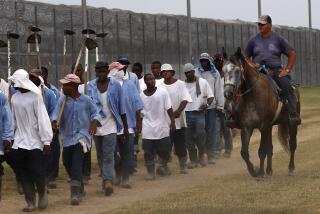Conflicting Views of Workers’ Treatment
- Share via
* In disputes about working conditions in a plant, who is more likely to uncover the truth--the person who tours the plant with the company or the person who meets with workers off the premises?
“Garment-Textile Boom Brings Wrenching Change to Mexico” [Sept. 27] cites “Cross Border Blues,” a report I wrote. The report discusses working conditions in plants in Tehuacan that produce for U.S. denim companies such as Guess, Sun Apparel Inc. and VF Corp. When our fact-finding delegation went to Tehuacan, we were unable to view inside the factories, but we did meet with workers off the premises and worked closely with the local Human Rights Commission, which is headed by a respected priest in the area.
In “Maquiladoras Tour Reveals a Different Picture” [Letters, Oct. 18], Judi A. Kessler suggested that she had more accurate information because she had visited a plant with a U.S. apparel representative. She even “spent up to 30 minutes hidden behind 10-foot stacks of Guess jeans, watching for signs of worker abuse.” Everything seemed fine to her. She observed a “general spirit of cooperation.”
When the Department of Labor investigates worker problems in the U.S., its investigators understand that you can’t ask workers about problems inside plants. International human rights monitors also understand the necessity of talking with workers about working conditions off the premises.
Our report was based on interviews with workers. All interview notes were double-checked. The Human Rights Commission staff confirmed that the basic issues raised were ones they had heard frequently. Reporters who visited the area were not allowed into the plants but were able to confirm many of the items we reported and did not contradict anything reported. Two Mexican publications have translated and reprinted the report.
I don’t doubt that Ms. Kessler got a different view of how workers are treated by observing in the plant, rather than interviewing workers off-site. I just doubt that it was the whole truth.
KIM BOBO
Executive Director
National Interfaith Committee for Worker Justice
Chicago
More to Read
Inside the business of entertainment
The Wide Shot brings you news, analysis and insights on everything from streaming wars to production — and what it all means for the future.
You may occasionally receive promotional content from the Los Angeles Times.










